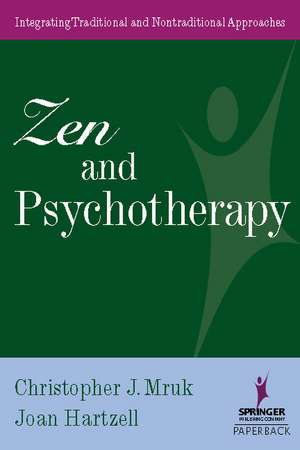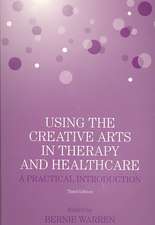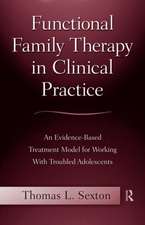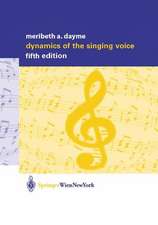Zen and Psychotherapy: Integrating Traditional and Nontraditional Approaches
Autor PhD Mruk, Christopher J. Joan Hartzellen Limba Engleză Paperback – 31 mar 2006
With over 80 years of combined experience in the mental health field, Mruk and Hartzell explore the role of spirituality and religion in treatment and provide a sound clinical and academic rationale for integrating principles of Zen and traditional psychotherapy. They offer help to clinicians, supervisors, and educators in understanding specific Zen principles that can hold significant therapeutic value, and how they are compatible with traditional, empirically oriented, scientifically based education and training, regardless of one's particular academic or disciplinary orientation.
The authors, one a clinical educator and social scientist, the other a nurse psychotherapist and practicing Buddhist, present a fascinating dialogue on the "science" and the "art" sides of the art-science debate. This allows their different points of view to come together in both academic and personal communication, offering practical suggestions for achieving a balance between these two views on the helping and healing process.
Preț: 376.56 lei
Preț vechi: 396.38 lei
-5% Nou
72.08€ • 78.32$ • 60.58£
Carte tipărită la comandă
Livrare economică 21 aprilie-05 mai
Specificații
ISBN-10: 0826120350
Pagini: 249
Dimensiuni: 154 x 227 x 13 mm
Greutate: 0.35 kg
Editura: Springer
Textul de pe ultima copertă
With over 80 years of combined experience in the mental health field, Mruk and Hartzell explore the role of spirituality and religion in treatment and provide a sound clinical and academic rationale for integrating principles of Zen and traditional psychotherapy. They offer help to clinicians, supervisors, and educators in understanding specific Zen principles that can hold significant therapeutic value, and how they are compatible with traditional, empirically oriented, scientifically based education and training, regardless of one's particular academic or disciplinary orientation.
The authors, one a clinical educator and social scientist, the other a nurse psychotherapist and practicing Buddhist, present a fascinating dialogue on the ""science"" and the ""art"" sides of the art-science debate. This allows their different points of view to come together in both academic and personal communication, offering practical suggestions for achieving a balance between these two views on the helping and healing process. "











